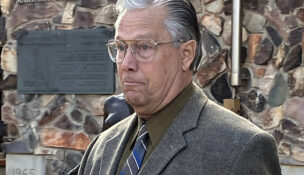Arizona 0-for-4
Arizona Capitol Reports Staff//November 7, 2008//[read_meter]
Sen. John McCain gestures as he addresses a rally with supporters on Election Night in Phoenix. It was inevitable that John McCain’s campaign would conjure comparisons with Barry Goldwater, the...
No tags for this post.

















